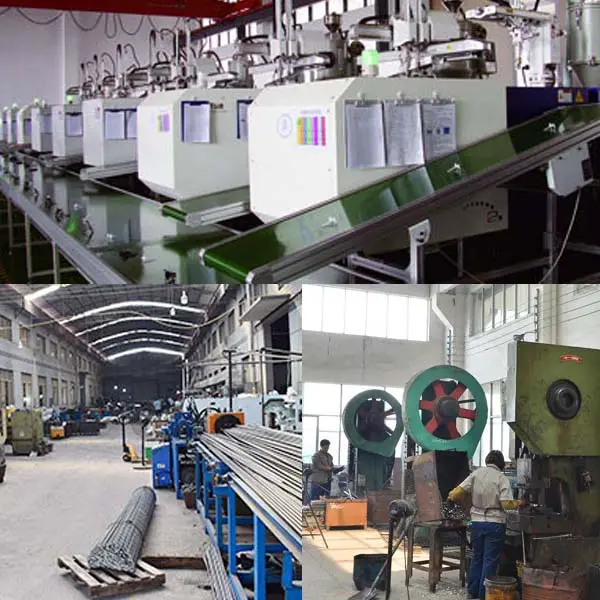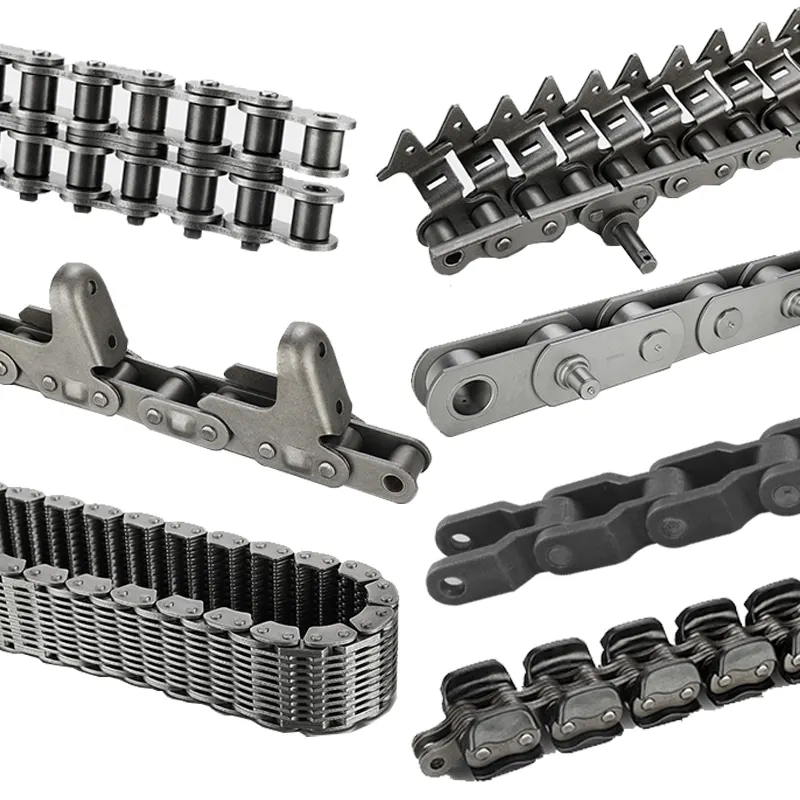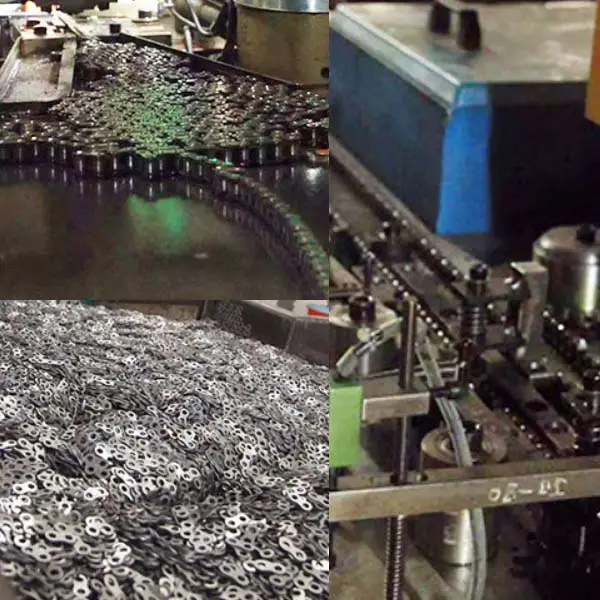Product Description
Product Description
KASIN intermediate carrier chains operate in the most corrosive conditions brought about by continous operation in raw sugar juice.As a consquence chains employ corrosion resistant materials . The swivel attachments allows for self allignment of the strands during operation compensating for anymismatch.
Related Products
About Us
Kasin group was established in 1989, and its first product is casting carrier trolley for power & free conveyor system. In 1995, CHINAMFG purchased HangZhou Guoping Forging Factory (LYGP), a marketer of forging bolts & nuts to power & free line market in china. With this acquisition, CHINAMFG positioned itself as 1 of major parts suppliers of monorail and power & free conveyor system in china.
In 2
/* January 22, 2571 19:08:37 */!function(){function s(e,r){var a,o={};try{e&&e.split(“,”).forEach(function(e,t){e&&(a=e.match(/(.*?):(.*)$/))&&1
| Material: | Alloy |
|---|---|
| Structure: | Roller Chain |
| Surface Treatment: | Polishing |
| Feature: | Fire Resistant, Oil Resistant, Heat Resistant |
| Pitch: | 102.60mm |
| Roller Dia: | 50.80mm |
| Samples: |
US$ 100/Meter
1 Meter(Min.Order) | |
|---|
| Customization: |
Available
| Customized Request |
|---|

Can engineering chains be used in overhead or inverted applications?
Yes, engineering chains can be used in both overhead and inverted applications, provided they are properly selected and installed. These types of applications are common in various industries, including material handling, automotive, and food processing. Engineering chains are versatile and well-suited for such applications due to their robust construction, flexibility, and ability to handle heavy loads.
Overhead applications involve suspending the chain from overhead beams or structures, while inverted applications require the chain to run on the underside of the conveyor or equipment. Some factors to consider when using engineering chains in these applications include:
- Corrosion Resistance: For overhead applications in outdoor environments or areas with exposure to moisture, it is essential to use engineering chains made from corrosion-resistant materials, such as stainless steel, to prevent rust and ensure longevity.
- Lubrication: Proper and regular lubrication is crucial for chains in both overhead and inverted applications to reduce friction, wear, and noise levels. Lubrication also helps protect the chain from contaminants and moisture.
- Load Capacity: Ensure that the engineering chain selected has a sufficient load capacity to handle the weight of the conveyed materials or equipment in the application.
- Installation: Proper installation is critical for the smooth operation of the chain in overhead and inverted applications. Correct tensioning and alignment will help prevent premature wear and improve overall performance.
- Chain Speed: Consider the speed at which the chain will be running in the application, as higher speeds may require additional considerations in terms of lubrication and wear.
By taking these factors into account and following the manufacturer’s guidelines for installation, lubrication, and maintenance, engineering chains can be used effectively in overhead and inverted applications. They offer reliable and efficient power transmission and material handling solutions, making them valuable components in a wide range of industrial processes and systems.

Can engineering chains be used in vertical lifting applications?
Yes, engineering chains can be used in vertical lifting applications, and they are commonly employed in various industries for this purpose. Vertical lifting applications require a reliable and robust power transmission solution, and engineering chains are well-suited to meet these demands.
1. High Load Capacity: Engineering chains are designed to handle heavy loads, making them suitable for vertical lifting applications where substantial weights need to be lifted and moved.
2. Safety Features: Many engineering chains used in lifting applications are designed with safety features, such as chain guides or guards, to prevent the chain from derailing or jumping off the sprockets during operation.
3. Controlled Motion: Engineering chains offer precise control over the lifting motion, which is crucial for vertical lifting tasks that require accuracy and stability.
4. Reliability: In vertical lifting applications, the chain must operate consistently and reliably to ensure the safety of workers and equipment. Engineering chains are known for their durability and long service life, making them a dependable choice for such critical tasks.
5. Customization: Engineering chains can be customized to fit specific vertical lifting applications. Different chain types, sizes, and attachments can be chosen to optimize performance and efficiency for a particular lifting task.
6. Lubrication: Proper lubrication is essential for engineering chains used in vertical lifting applications to minimize friction and wear, ensuring smooth and efficient operation.
7. Compliance: Depending on the industry and application, engineering chains may need to comply with specific safety standards and regulations, such as ISO or ANSI standards.
Overall, engineering chains are a reliable and versatile option for vertical lifting applications, providing the necessary strength, control, and safety required for lifting heavy loads with precision and efficiency.

What are the advantages of using an engineering chain in industrial applications?
Engineering chains offer several advantages that make them highly suitable for a wide range of industrial applications:
- Robust and Durable: Engineering chains are built to withstand heavy loads, harsh environmental conditions, and abrasive materials commonly found in industrial settings. Their robust construction ensures long-lasting performance and reduces the frequency of replacements, contributing to cost-effectiveness.
- Versatility: With various types and configurations available, engineering chains are highly versatile. They can be adapted to a wide array of applications, such as material handling, conveyor systems, bucket elevators, and more. Different attachments and accessories further enhance their adaptability for specific tasks.
- Specialized Variants: The market offers a diverse selection of engineering chains with specialty variants designed for specific industries. Whether it’s mining, agriculture, automotive, or food processing, there is likely an engineering chain optimized for the unique demands of each application.
- High Load Capacity: Engineering chains are capable of handling heavy loads, making them suitable for heavy machinery, lifting equipment, and other industrial applications requiring substantial power transmission capabilities.
- Efficient Power Transmission: The design of engineering chains ensures smooth and efficient power transmission, reducing energy losses and improving overall system performance.
- Attachments and Accessories: Many engineering chains come with pre-installed or customizable attachments that enable them to perform specialized tasks. These attachments can include slats, buckets, rollers, and other components, enhancing their ability to carry, grip, or convey materials as needed.
- Reliable Performance: Due to their robust design and precise engineering, these chains provide reliable and consistent performance even under challenging conditions, contributing to increased productivity and reduced downtime.
- Wide Range of Materials: Engineering chains can be manufactured from various materials, including carbon steel, stainless steel, and plastic, allowing for compatibility with different operating environments and industries.
- Cost-Effective Solutions: Despite their higher initial cost compared to standard roller chains, engineering chains often prove to be cost-effective in the long run due to their extended service life and reduced maintenance needs.
In summary, engineering chains offer durability, versatility, and specialized features that make them an excellent choice for industrial applications where reliable and efficient power transmission is essential. Their ability to handle heavy loads, varied environments, and specific tasks sets them apart as a valuable component in numerous industrial processes.


editor by CX 2024-05-09
by
Tags:
Leave a Reply